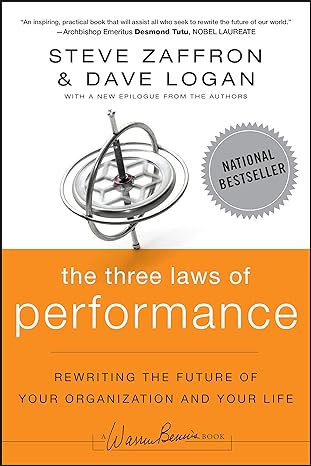Some months ago someone shared with me a video. I couldn’t decide if I agreed with the idea being presented:
“Feminism has been one of the loudest advocates for the transgender minority. Miss magazine which is a U.S.-based feminist publication, has a yearly list of top feminists. Multiple women on this list were added simply for being transgender. As an ideology feminists aim to break the patriarchy and reinforce equality between men and women often citing things like the gender pay gap or tearing down stereotypes. But trans people fight for the exact opposite. They want the stereotype. They want the heels the long styled hair and the dresses. These are two groups that couldn’t be fighting for more opposite goals, but yet feminist groups continue to celebrate trans victories. [It] seems very strange that feminist organizations like Miss magazine, which fought for the eradication of female stereotypes like staying at home, or their place is the kitchen, would accept these stereotypes when it comes to transgender. Feminist movements can’t both support and not support female stereotypes at the same time. Now I will say that unlike the 2021 list of top feminists which had several trans women on it, the Miss magazine 2022 list of top feminists has none. So it appears that the wokeness is starting to wake up to some of its logic fallacies.” (5 Woke Contradictions, The Think Report, Jan 14, 2023)
I paused to reconsider the presenter’s conclusion about female stereotypes. There are harmful stereotypes and less harmful stereotypes. The example of a toddler that I relate below, seems to be a less harmful stereotype. Stereotypes of women, like staying at home, or their place is the kitchen, can be more harmful stereotypes. On the other hand, the stereotype that women are feminine and beautiful could be argued is a less harmful stereotype (acknowledging, of course, that any of these ideas are subject to abuse and can be more or less harmful in given circumstances).
“When I think of, say, a toddler, I think of a toddler as throwing tantrums, not eating what you give them to eat, being demanding and irrational. Those are all stereotypes about toddlers. Individual toddlers may behave differently.
A stereotype is a commonly held mental image, as our definition puts it, that represents an over-simplified opinion, a prejudiced attitude, or an unconsidered judgment about someone or something.” (A Totally Original History of ‘Stereotype’, emphasis mine.)
I can’t say that “an over-simplified opinion” is necessarily a bad thing, but “a prejudiced attitude or unconsidered judgment about someone” seems to approach something more clearly harmful or dangerous.
I wonder if the focus on stereotypes misses the more important point in this discussion.
Consider Laurel Thatcher Ulrich’s work. She wrote a book titled Well Behaved Women Don’t Make History, which has since been turned into a slogan. The title was taken from an earlier article she wrote about funerals in the Puritan era and the behavior of women. The article makes this sobering observation:
“In ministerial literature, as in public records, women became legitimately visible in only three ways: they married, they gave birth, they died.”
As demeaning as that sentence sounds, I think we should not be too quick to dismiss the significance of what is sandwiched between ‘they married’ and ‘they died’. Women alone carry within them the power to create life.
The Always ad campaign #LikeAGirl, focused on the female stereotype of ‘running like a girl‘. But the point extends beyond simply a message about the stereotype.
“What advice do you have to young girls who are told they run like a girl, kick like a girl, hit like a girl, swing like a girl?
Keep doing it cuz it’s working. If somebody else says that running like a girl or kicking like a girl or shooting like a girl is something that you shouldn’t be doing, that’s their problem. Because if you’re still scoring and you’re still getting to the ball on time, and you’re still being first, you’re doing it right. Doesn’t matter what they say. I mean yes I kick like a girl and I swim like a girl and I walk like a girl and I wake up in the morning like a girl, because I AM a girl.”
Being aquatinted with some friends and family who describe their experience with being transgender as a struggle, has drawn me to wonder. Whatever words you may use to describe femininity, it must include the kind of things that, if you are a male engaged in this struggle, you feel trapped in a body that is opposite of those traits and attributes. I can’t imagine the contradiction of living inside a body, complete with all the physical paraphernalia that makes up the male, feeling sexually confused and uncomfortable inside my own skin. It would stand to reason how the experience of depression and self loathing (words that have been used by those I know struggling with their transgenderism) would accompany living such a contradiction.
In their book A Hunter-Gatherer’s Guide to the 21st Century, Brett and Heather make a distinction between ‘hotness’ and ‘beauty’ and the roles these play in the evolutionary process. “Hotness fades fast with reproductive potential. Beauty fades far more slowly.” (See Heying, Heather; Weinstein, Bret. A Hunter-Gatherer’s Guide to the 21st Century (p. 119). Penguin Publishing Group. Kindle Edition.) For some, there is little that can be done to create what could be considered attractive ‘hotness’, given the package within which they have to work. Depending on how much physical appearance is a factor in how one identifies and feels, this could additionally contribute to the challenges of depression and self-contempt.
There is a lot of attention given to those who would abuse transgenderism in order to serve a selfish or politicly motivated agenda. One obvious example is Avi Silverberg, the head coach for Team Canada Powerlifting for more than 10 years, entered Hero’s Classic tournament in Lethbridge, Alberta, after identifying as a female, and then winning the women’s competition.
This exemplifies the valid concern I raised recently at work when I posed the following question (directed to the women’s ally resource group):
“I’m honestly confused. How do women feel at the possibility of being taken advantage of by some man capitalizing on a system where he can claim to be a woman for the purpose of exploiting a situation? This is not asked from a perspective with any specific person or situation in mind, but I’m genuinely curious how women may feel at the potentiality of those who might be inclined to take advantage of and manipulate or abuse women in any environment that facilitates such exploitation.”
For those legitimately trying to navigate the complexity of their own trans identity, I believe it only adds tension to the situation they find themselves in when these issues get abused by those with selfish intentions or politically motivated agendas.
Rarely have I encountered someone where it was not evident the person was male or female. In these cases, if they don’t have their pronoun broadcast clearly on a T-shirt they may be wearing, or I have not seen their email signature that identifies it, then, should I choose to engage a conversation where I don’t want to offend, I may find myself in the awkward position of having to carefully navigating the social situation. Perhaps I will listen in on conversations and wait to see how others who know the person address them.
I imagine that if I were a female with enough masculine features that could confuse people as to my gender, and I would prefer not to be identified as a boy, then what I would do is choose more feminine style clothing and accentuate my more feminine characteristics in some way, or do other things that would make it more evident who I am. With this idea in mind, if I’m a transgender woman and I don’t have all the characteristics of a beautiful or ‘hot’ female, then I could understand dressing up to indicate to the outside world and make it evident how I choose to identify. When I encounter someone who appears to be clearly male, dressed in a way so as to broadcast femininity, which is the better approach? Should I assume 1), they are choosing to be a human billboard promoting a woke agenda, or rather should I take the position that 2), the statement they are publishing has no other agenda than their sincere best effort to reflect their own authentic self in the best way they know how? For me, my own personal truth is that to the best that I am able to judge impartially, I choose to take others at their word. I acknowledge that this takes practice, and I don’t always get it right. To the extent that the statement being broadcast by the way someone chooses to present themselves to the world is in essence, their “word,” how is the best way for me to judge? Can I take them at their word without compromising my belief that there are those with harmful agendas that undermine a very real struggle being experienced by those who are simply trying to circumnavigate this otherwise difficult terrain they find themselves in?
My prayer is that no matter where our political beliefs tend to draw us, individually we can still choose kindness and tolerance as we strive for unity in a world that otherwise seems to increasingly be pushing toward polarizing us into camps of “us” vs “them”.


_(14761939436).jpg)
